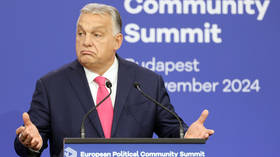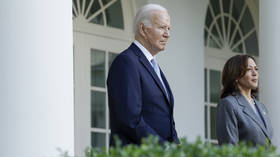Russia hails Bulgaria energy deals
Russia and Bulgaria have signed several key energy deals, including for two separate oil and gas pipelines. As Vladimir Putin noted, the projects will improve energy security in Europe and diversify supplies.
Energy projects
Kosovo's status
Historic ties
The South Stream pipeline will run under the Black Sea, and then through Bulgaria to the rest of Europe.
The project is a joint venture between Russia's Gazprom and Italy's Eni and will eventually supply a fifth of Europe's gas needs, carrying up to 30 billion cubic metres of gas each year.
A shareholder deal over the Burgas-Alexandroupolis project was also hailed by both leaders.
The oil pipeline will be an alternative route for Russian oil bypassing the Bosporus and the Dardanelles.
Giving his assessment of the deals reached, Russia’s President Vladimir Putin noted that “the expansion of the transportation infrastructure is highly important in supplying energy to Europe. Our European partners agree with this. I’d like to emphasise the construction of the new routes doesn’t undermine co-operation with our old partners. The new transit routes provide more stability for Europe.”
Besides, Russia’s state-run Atomstroyexport and Bulgaria’s National Electric Company has struck a 3.9 billion euro ($US 5.9 billion) deal on the construction of the Belene nuclear power plant.
Atomstroyexport is to build two reactors in Belene, with the first expected to be commissioned in late 2013 and the second in 2014.
Speaking at the media conference after the meeting Bulgaria’s President Georgi Parvanov also thanked Russia for its decision “to employ Bulgarian construction companies not only in Moscow but also at the huge installations that will be built for the next Olympic Games in Sochi”.
The parties also discussed the possibility of expanding co-operation in new technologies, namely a series of initiatives concerning the endorsement of the Cyrillic alphabet on the Internet.
International issues were also on the agenda, particularly the future status of Kosovo with Russia and Bulgaria seeming to shares the same views on the situation.
President Putin has once again underlined that Russia believes in holding further negotiations until a compromise, satisfactory for both sides, is found and that there is no other way for it to be considered legitimate by Russia.
“A unilateral declaration of independence and the support of this process by all the members of the international community will be an unlawful and immoral decision, and Russia will not be able to uphold such a solution to this issue,” said Vladimir Putin.
The year 2008 will be the Year of Russia in Bulgaria and is timed to coincide with the 130th anniversary of Bulgaria's liberation from Ottoman rule by the Russian Army.
In 1878, the Treaty of San-Stefano, signed following the Russian-Turkish war, established Bulgaria as an autonomous principality.
The Year of Russia will be marked by various events, art exhibitions, film festivals, and other activities showcasing Russian art and culture. It will be followed by the Year of Bulgaria in Russia in 2009.












